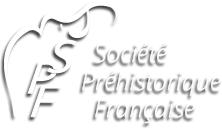 Actualités
Actualités 
Congrès, colloques, réunions - Appel à contributions / Call for papers
8-11 septembre 2021
Kiel
 Session 267 - 27th Annual Meeting of the European Association of Archaeologists : Widening Horizons
Session 267 - 27th Annual Meeting of the European Association of Archaeologists : Widening Horizons
In archaeology, quantitative approaches have a long tradition and belong to the very core of the discipline. However, the history of quantitative archaeological reasoning might be not as straightforward as suggested by the disciplinary history commonly shared among archaeologists. Taken into account different social interests and traditions we doubt the narrative of linear methodological and technical progress, especially considering to a certain extent alternative developments of quantitative approaches in blocks of countries somewhat separated by language barriers. Different communities assign different roles and functions to quantitative procedures applied in archaeology. The use of a kuhnian “paradigm change” framework might be adequate to describe some parts of this history in large scale, but certainly not the whole picture in details, which also includes other complex socio-epistemic processes such as multiple discoveries, parallel developments, absorption, generational distinctions, etc.
This session aims to explore the multitude of factors that determine the development of quantitative archaeology. We intend to stimulate renewed perspectives on this aspect the history of archaeology, through approaches such as historical sociology, examinations of communication issues, analysis of the relationship between sciences and humanities, and of the friction between theory and method.
This session welcomes presentations addressing, for example :
- technological constraints
- different understandings of the role of archaeology within the poles of sciences and humanities
- research questions behind quantitative approaches
- ignorance of the other ideas due to misunderstandings and different slang
- foci on different questions and theories
- different underlying assumptions
- social conflicts between actors
- influence of other fields of science on the development of measuring and estimations in archaeology.
We assume that a deeper understanding of the history of research will allow us to develop less biased perspectives in archaeology and more coherent applications of quantitative approaches.
Session Organisers:
Main organiser:
Sébastien Plutniak (France)
Co-organisers:
Oliver Nakoinz (Germany)
Tim Kerig (Germany)
Aleksandr Diachenko (Ukraine)
Call for oral and poster contributions is now open - deadline for submitting an abstract is 11 February 2021
Via Academia


